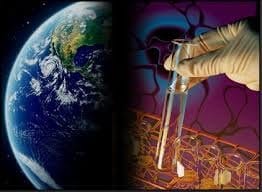In a contested bond revocation hearing, not long ago, the State attempted to admit evidence our client violated a restricted zone using global positioning system (GPS) evidence. They further sought to admit evidence from a Secure Continuous Remote Alcohol Monitoring (SCRAM) device that she inappropriately consumed alcohol while on bond. On the day of the hearing we noticed the only witness subpoenaed by the State was the office manager from Recovery Healthcare Corporation, our local GPS and SCRAM system provider. At the same time we pondered . . . “how much does the office manager really know about the scientific reliability of GPS and SCRAM?” Accordingly, before the witness testified about the alleged violations we objected under Kelly v. State, 824 S.W.2d 568 (Tex. Crim. App. 1992) and asked the court’s permission to voir dire the office manager pursuant to Rule of Evidence 705(b) for an inquiry into their understanding of the facts and data about which they were about to testify.
further sought to admit evidence from a Secure Continuous Remote Alcohol Monitoring (SCRAM) device that she inappropriately consumed alcohol while on bond. On the day of the hearing we noticed the only witness subpoenaed by the State was the office manager from Recovery Healthcare Corporation, our local GPS and SCRAM system provider. At the same time we pondered . . . “how much does the office manager really know about the scientific reliability of GPS and SCRAM?” Accordingly, before the witness testified about the alleged violations we objected under Kelly v. State, 824 S.W.2d 568 (Tex. Crim. App. 1992) and asked the court’s permission to voir dire the office manager pursuant to Rule of Evidence 705(b) for an inquiry into their understanding of the facts and data about which they were about to testify.
Before scientific evidence is admissible pursuant to Texas law it must meet three (3) reliability criteria. First, the underlying scientific theory must be valid. Next, the technique applying the theory must be valid, as well. And lastly, the technique must have been properly applied on the occasion in question. Kelly, supra. Before the scientific evidence is admissible the trial court must conduct a hearing to determine whether the proponent of the evidence has established its reliability using the Kelly criteria. Jackson v. State, 17 S.W.3d 664 (Tex. Crim. App. 2000). The burden is on the proponent to prove admissibility by clear and convincing evidence. Fuller v. State, 827 S.W.2d 919 (Tex. Crim. App. 1992). Additionally, seven (7) factors should be considered by the trial court in deciding whether the reliability criteria have been satisfied: (1) the extent to which the underlying theory and technique were accepted as valid by the relevant scientific community; (2) the qualifications of the expert testifying; (3) the existence of literature supporting or rejecting the underlying scientific theory and technique; (4) the potential rate of error in the technique; (5) the availability of other experts to test and evaluate the technique; (6) the clarity with which the underlying scientific theory and technique can be explained to the court; and (7) the experience and skill of the person who applied the technique on the occasion in question. Kelly at 573. This “gatekeeping” determination is required whether the science at issue is novel or well established. Hartman v. State, 946 S.W.2d 60 (Tex. Crim. App. 1997). Finally, once a particular type of scientific evidence is well established as reliable a trial court may take judicial notice of that fact, thereby relieving the proponent of the burden of producing evidence on that question. Emerson v. State, 880 S.W.2d 759 (Tex. Crim. App. 1994).
Remarkably, the court sustained our Kelly objection to the GPS and SCRAM data. During the Rule 705 voir dire examination we utilized the seven Kelly factors as grist for the cross-examination mill. And without surprise, the Recovery Healthcare office manager was neither qualified to establish the scientific reliability of GPS, nor qualified to establish the reliability of the SCRAM system. Moreover, the prosecutor was caught off-guard . . . a mistake I doubt they will repeat. Most importantly, though, our client slept comfortably in their own bed that night since the court properly exercised its function by determining the proponent of scientific evidence had not satisfied its burden to prove the evidence was scientifically reliable.
The teaching point was this. We understand Kelly has been used historically to compel trial courts to perform a gatekeeping function by excluding junk science. But Kelly stands for more than the suppression of unreliable scientific evidence. It forces the proponent of all scientific evidence to establish its reliability. For example, before urinalysis, drug field testing, cell tower data, or any scientific evidence a prosecutor may use against our client is admissible, it must be proven scientifically reliable. The Kelly objection applies during trial, motions to revoke probation, bond hearings, and other contested proceedings. Furthermore, over-worked prosecutors may often be unprepared to prove-up the scientific reliability of their evidence. And like our recent experience, you may help your client enjoy a good-night’s sleep in their own bed after a well-fought motion to revoke hearing. Use Kelly creatively and good luck!
Stephen Gustitis is a criminal defense lawyer in Bryan-College Station. He is Board Certified in Criminal Law by the Texas Board of Legal Specialization. He is also a husband, father, and retired amateur bicycle racer.


